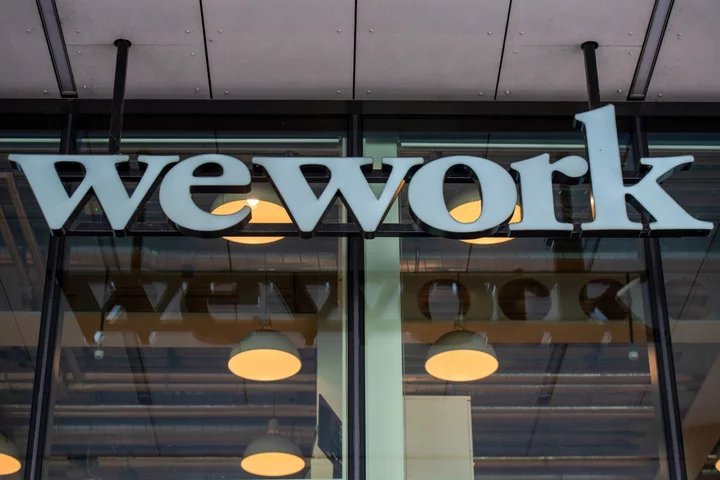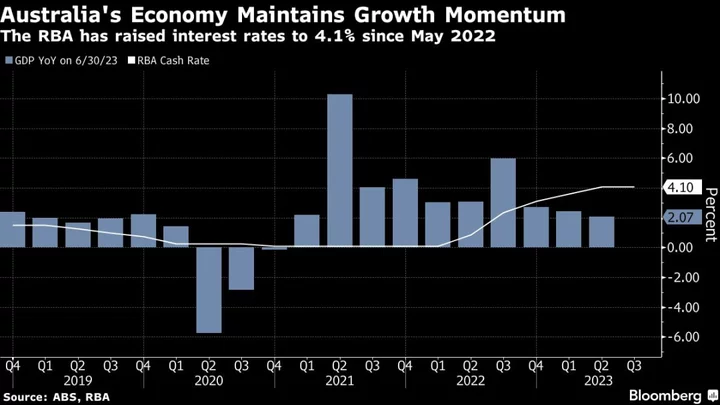WeWork Inc., the troubled co-working company on the brink of collapse, is moving forward with a 1-for-40 reverse stock split in a bid to save its listing on the New York Stock Exchange.
Shares fell as much as 24% to 12 cents in premarket trading.
WeWork has been trying to deliver a turnaround story for years — one in which the rowdy co-working startup transforms into a stable, profitable public company. But the New York-based company has been bleeding cash, and customers of its office rentals are canceling memberships in droves, forcing the firm on Aug. 8 to warned that it may not be able to stay afloat.
Read More: WeWork’s ‘Substantial Doubt’ Over Future Marks Stunning Fall
WeWork’s stock has plunged 99% since the company went public in October 2021, wiping out $9 billion in market value.
The reverse stock split will go into effect at 4:01 p.m. New York time on Sept. 1 and begin trading on a post-split basis at the market open on Sept. 5, WeWork said in a statement Friday. The split will be done to regain compliance with listing requirements and isn’t expected to affect operations, the company said in a statement.
The New York Stock Exchange requires a minimum closing price of $1 per share and such reverse splits are standard practice for penny stocks seeking to maintain their listings.
The speed of WeWork’s decline has been stunning. In 2019, WeWork was the biggest private occupier of office space in Manhattan and London, operated millions of square feet in dozens of countries and was valued at $47 billion, which made it one of the most prized startups in America.
Venture capitalists fueled its rise with billions of dollars to rent up real estate around the world and lease it back to workers. Co-founder Adam Neumann led a disastrous attempt at an initial public offering in 2019, resulting in his ouster as chief executive officer and necessitating a financial rescue from its major backer, SoftBank Group Corp.
The Covid-19 pandemic dealt another blow. WeWork’s office locations, which emptied out during the early months of the health emergency, were showing slow progress toward filling back up over the last year. But the recovery appears so far to be unsustainable. WeWork said this month occupancy dropped in the second quarter compared to the previous period.
(Updates with shares and context starting in second paragraph.)









